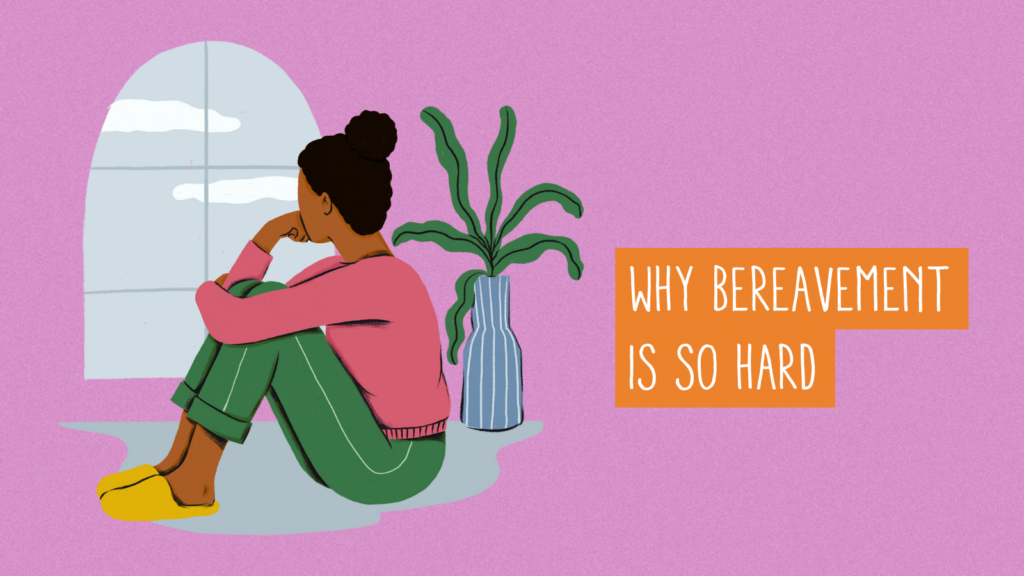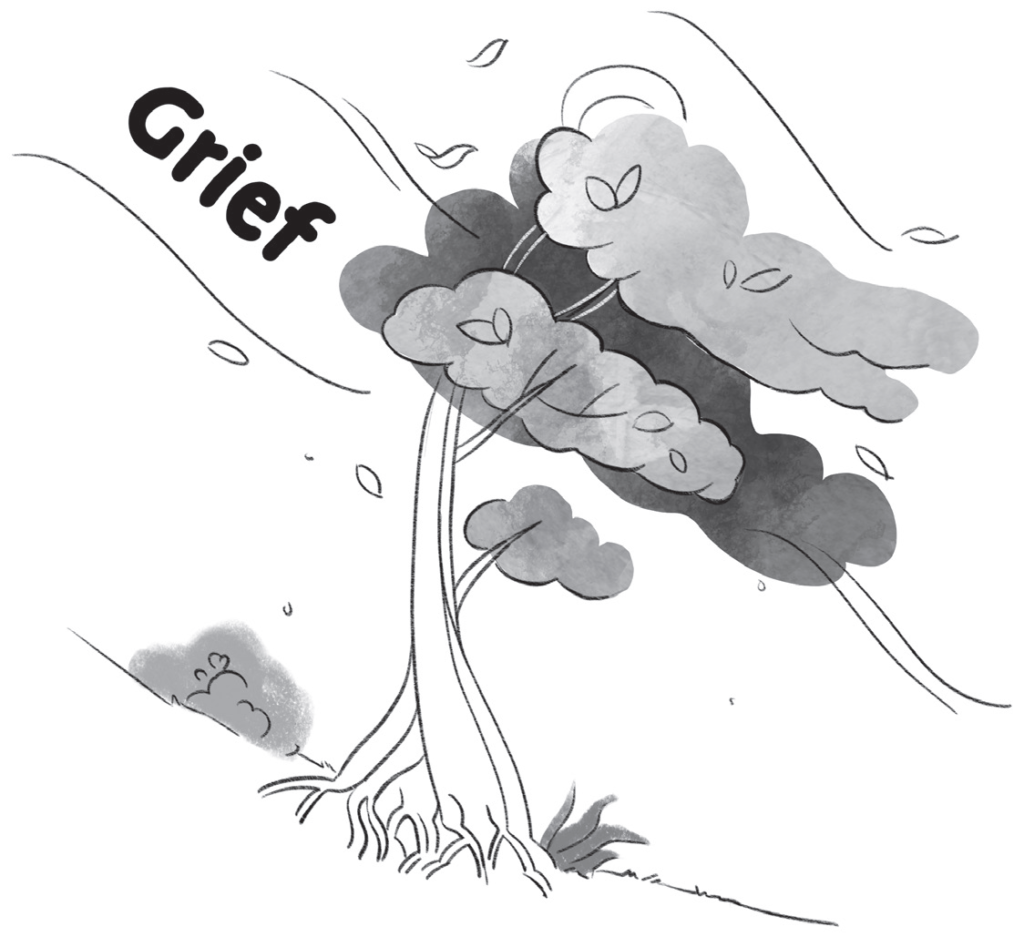
Why Bereavement is SO Hard
In this blog post you can find an extract from My Grief Handbook by David Trickey, Beck Ferrari, and Olivia Clark-Tate, that examines what makes grief so tough for older children and teenagers.
Why bereavement is so hard… “What probably makes bereavement so tough is experiencing the permanent loss of someone important, and still having to somehow get on with everything that everyone expects you to be doing at this time in your life. The phrase ‘grief is the price we pay for love’1 goes some way towards helping to explain this. Because the person who died was significant to you, and you had an important relationship with them, it is probably going to hurt a lot when they are no longer there.
Psychologists describe strong relationships as attachments. These are the bonds of warmth, love and security that we have with key people – often our family or close friends. In spite of daily ups and downs, these relationships are seen to be the foundation of wellbeing and good development.
So it’s inevitable that it’s going to hurt a lot when that person is gone and you can no longer have them physically in your life.
While attachment may mean the pain you feel at their death is at times overwhelming, it is this same foundation of love that gives you something powerful to hold on to, knowing how special that person was to you and you were to them. But grief is individual, and the depth of your grief is not related to how much you loved the person or how good your relationship was. Sometimes even though you loved the person who has died very much, your pain can feel more manageable, and you may have all sorts of reasons for not finding grief so very hard. Sometimes, the relationship you had with the person who died was complicated, or perhaps they were already absent in your life, and yet you find that after their death, it is a real (and understandable) struggle to manage your grief (more about this in Chapter 2 of My Grief Handbook). Sometimes we grieve for the love we should have had and maybe one day hoped to have, and that can really, really hurt.

When you have had strong attachments or secure relationships as you have been growing up, even though the grief feels very painful and at times overwhelming, it gives you a strong foundation that can help you to get through each day. It’s as though these relationships give us strong roots to help us weather the storm of the grief and the tornado of feelings it can bring. Grief can blow us around a lot and leave us feeling pretty battered, but somehow our roots keep us secure. Those roots that are going to support you might be based on strong relationships you’ve had in the past that have given you a certain sense of feeling secure which will now help you weather the storm.

But your roots might also be formed of ongoing current relationships (with friends, family and furry friends) and the support that they can give you. The roots may even be based on an ongoing connection with the person that has died – even if that seems weird. But lots of people continue to have a relationship of some sort with someone who has died. Of course, it’s a different relationship to the one they had when the person was alive, but it’s still a relationship – the person who died can continue to play a part in your life.
You may not have had so many strong relationships in your growing-up years, so when someone dies, that brings even more challenges and another hard thing to manage on top of the pain you may have been through. On the other hand, often this gives you lots of experience in being blown around by the storms of life. And you might be able to use what you have learned from these other storms to help you get through each day with your grief. Maybe the friendships and relationships in your life right now are not really the most steady or helpful and that makes coping a bit harder. My Grief Handbook is full of ideas to help you cope, and they don’t all rely on someone else.”
1. Parkes, C.M. (1972) Bereavement: Studies of Grief in Adult Life. London: Tavistock.

You can order your copy of My Grief Handbook today via the JKP website.
Found this blog post interesting? You might like to check out The Grief Rock: Navigating Love & Loss with Kids